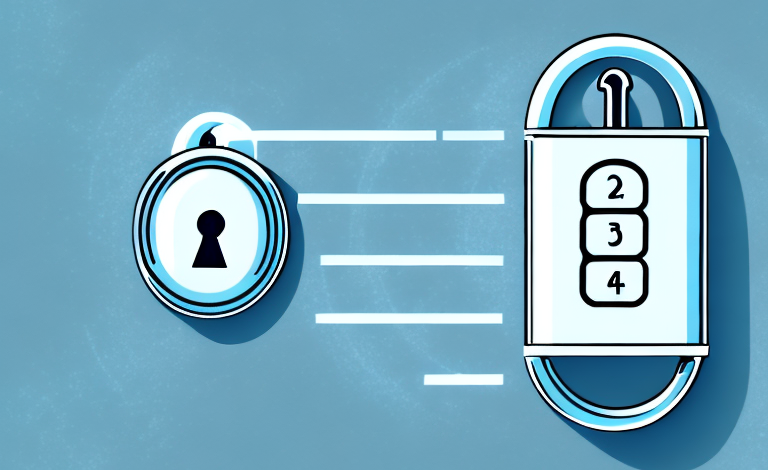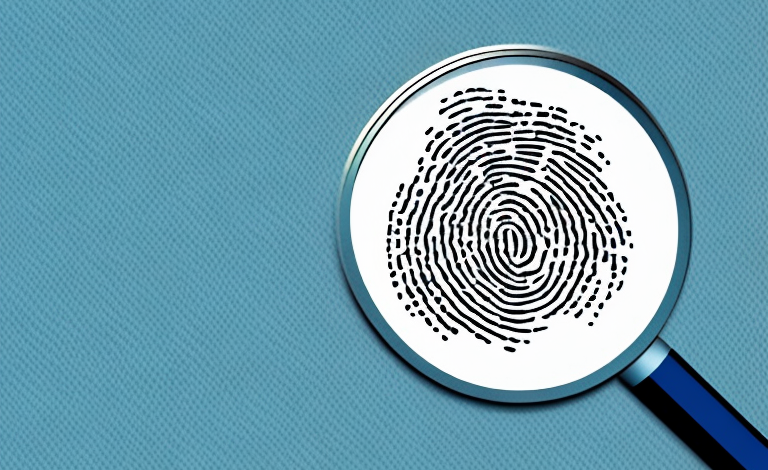When it comes to securing your home or business, traditional locks have long been the go-to option. However, advances in technology have led to the development of digital locks, which offer a host of benefits over their traditional counterparts. In this article, we will explore the reasons why digital locks are better, and provide a comprehensive guide to their installation and maintenance.
The evolution of locks: from traditional to digital
The earliest known locks were invented in ancient Egypt and China, and were made of wood and bronze. Over time, locks have evolved to become more sophisticated and difficult to pick. However, even the most advanced traditional locks can be vulnerable to lock picking and other types of physical attacks. Digital locks, on the other hand, offer a more secure and tamper-proof solution that is increasingly becoming popular.
One of the main advantages of digital locks is that they can be easily programmed to allow access to specific individuals at specific times. This makes them ideal for use in commercial and residential settings where access needs to be restricted to certain people. Additionally, digital locks can be remotely controlled and monitored, which means that property owners can keep track of who is entering and leaving their premises at all times.
Despite their many benefits, digital locks are not without their drawbacks. For one, they require a power source to operate, which means that they may not be suitable for use in areas where electricity is not readily available. Additionally, digital locks can be vulnerable to hacking and other types of cyber attacks, which means that they need to be properly secured to prevent unauthorized access.
The benefits of digital locks over traditional locks
There are several advantages to using digital locks over traditional locks:
Enhanced security
Digital locks offer a higher level of security than traditional locks. Many digital locks use advanced encryption algorithms and biometric systems to prevent unauthorized access. This makes them much more difficult to pick or bypass, ensuring that your property remains safe and secure at all times.
Convenience of keyless entry
One of the most significant benefits of digital locks is the convenience of keyless entry. With digital locks, there is no need to carry around a physical key or worry about losing it. Instead, you can use a keypad, smart card, or biometric scanner to gain access to your property. This is especially useful for businesses that have multiple employees who need access to various parts of the building.
Versatility for different access points
Digital locks are also highly versatile and can be used for different types of doors and access points. Whether you need to secure a main entrance, a storage room, or a cabinet, there is a digital lock that can meet your needs. This versatility makes digital locks an ideal choice for businesses and organizations of all sizes.
Remote access control
Another benefit of digital locks is the ability to control access remotely. With traditional locks, you need to physically be present to lock or unlock a door. However, with digital locks, you can control access from anywhere with an internet connection. This is particularly useful for businesses that have multiple locations or for homeowners who want to grant access to their property to guests or service providers when they are not home.
Integration with smart home systems
Digital locks can also be integrated with smart home systems, allowing you to control access to your property through your smartphone or other smart devices. This means that you can monitor who is coming and going from your property, receive alerts when someone enters or leaves, and even grant access remotely. This integration with smart home systems makes digital locks a convenient and modern choice for homeowners who want to enhance the security of their property.
How digital locks offer enhanced security
Digital locks offer several security features that traditional locks do not. These include:
Encryption algorithms
Digital locks use advanced encryption algorithms to ensure that only authorized individuals can access your property. These algorithms are virtually impossible to break, making them highly secure.
Biometric systems
Many digital locks use biometric systems, such as fingerprint scanners or facial recognition technology, to ensure that only authorized individuals can access the property. This makes them much harder to bypass than traditional locks, which can be picked or bypassed relatively easily.
Multiple access levels
Digital locks can also provide multiple access levels, allowing you to grant different levels of access to different individuals. For example, you may want to give some employees access to certain areas of the building, while others only have access to certain rooms. With a digital lock, you can set up these access levels easily.
Another advantage of digital locks is that they can be remotely controlled. This means that you can grant or revoke access to your property from anywhere in the world, as long as you have an internet connection. This is particularly useful for property owners who rent out their properties on platforms like Airbnb, as they can easily manage access for their guests.
Digital locks also offer a higher level of convenience compared to traditional locks. With a digital lock, you don’t need to carry around a physical key, which can be lost or stolen. Instead, you can use a code or your biometric data to unlock the door. This eliminates the need for spare keys and reduces the risk of unauthorized access to your property.
The convenience of keyless entry with digital locks
The convenience of keyless entry is one of the most significant benefits of digital locks. With a keyless lock, you can easily grant access to authorized individuals without having to worry about keys getting lost or stolen. This is especially useful for businesses that have multiple employees who need access at different times.
In addition to the convenience of keyless entry, digital locks also offer enhanced security features. Many digital locks have advanced encryption technology that makes it difficult for intruders to bypass the lock. Some digital locks also have features such as automatic locking and alarms that can alert you if someone tries to tamper with the lock. With these added security features, you can have peace of mind knowing that your property is well-protected.
The versatility of digital locks for different types of doors and access points
Digital locks are highly versatile and can be used for a wide range of different doors and access points. Whether you need to secure a main entrance, a storage room, or a cabinet, there is a digital lock that can meet your needs. This versatility makes digital locks an ideal choice for businesses and organizations of all sizes.
In addition to their versatility, digital locks also offer a high level of security. Many digital locks come equipped with advanced features such as biometric scanning, keyless entry, and remote access control. These features not only provide added security but also make it easier for authorized personnel to access restricted areas. Furthermore, digital locks can be easily integrated with other security systems, such as CCTV cameras and alarm systems, to create a comprehensive security solution for your business or organization.
The cost-effectiveness of installing digital locks in the long run
While digital locks may be more expensive than traditional locks, they offer a higher level of security and convenience. This makes them a cost-effective solution in the long run, especially for businesses that need to secure multiple access points. In addition, digital locks require less maintenance than traditional locks, which can help to minimize maintenance costs over time.
Comparison between different types of digital locks available in the market
There are many different types of digital locks available in the market, each with its own set of features and benefits. These include keypad locks, smart card locks, biometric locks, and Bluetooth locks. It is important to understand the differences between these types of locks to choose the right one for your needs.
Keypad locks
Keypad locks require the entry of a code to gain access. These locks are relatively simple and easy to use, but they may be less secure than other types of digital locks.
Smart card locks
Smart card locks use a card with an embedded microchip to provide access. These locks are more secure and convenient than keypad locks, but they may be more expensive.
Biometric locks
Biometric locks use a person’s unique biological features, such as a fingerprint or facial recognition, to grant access. These locks are highly secure and difficult to bypass, but they may be more expensive and require more complex installation.
Bluetooth locks
Bluetooth locks use wireless communication to provide access. These locks are highly convenient and offer a high level of security, but they may be vulnerable to certain types of hacking attacks.
How to choose the right digital lock for your home or business
When choosing a digital lock, there are several factors to consider:
Security
The most important factor to consider when choosing a digital lock is security. Look for a lock that uses advanced encryption algorithms and biometric systems to prevent unauthorized access.
Convenience
Another important factor to consider is convenience. Look for a lock that offers keyless entry and multiple access levels, allowing you to grant varying levels of access to different individuals.
Versatility
Consider the types of doors and access points that you need to secure, and choose a lock that is versatile enough to meet your needs.
Budget
Finally, consider your budget when choosing a digital lock. While more expensive locks may offer better security and convenience, they may not be necessary for all situations.
Installing and maintaining digital locks: a step-by-step guide
Installing and maintaining a digital lock is relatively simple, especially if you have some experience with DIY projects. Here is a step-by-step guide:
Step 1: Choose the right lock
Choose a lock that meets your security needs and is compatible with the type of door or access point that you need to secure.
Step 2: Install the lock mechanism
Remove the existing lock mechanism, and install the digital lock mechanism according to the manufacturer’s instructions. This may involve drilling new holes, so be sure to measure everything correctly before beginning.
Step 3: Install the keypad or biometric scanner
Install the keypad or biometric scanner according to the manufacturer’s instructions. This may involve running wires or drilling holes, so be sure to take these steps carefully.
Step 4: Test the lock
Test the lock to ensure that it is working correctly, and that everyone who needs access knows how to use it.
Step 5: Maintain the lock
Maintain the lock by cleaning it regularly and replacing the batteries as needed. Follow the manufacturer’s instructions for maintenance and troubleshooting.
Conclusion
Digital locks offer a higher level of security and convenience than traditional locks, making them an ideal choice for businesses and homeowners. By understanding the benefits of digital locks, and carefully evaluating your security needs, you can choose the right digital lock for your home or business and enjoy the peace of mind that comes with knowing that your property is secure. By following our step-by-step guide, you can install and maintain your digital lock with ease and ensure that it continues to provide the highest level of security for years to come.



